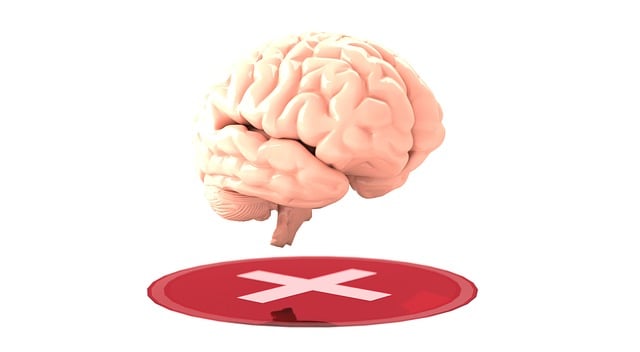Lone Tree Somatic Experiencing (SE) Therapy offers a comprehensive approach to stress management, addressing both emotional and physical triggers. Through workshops integrating SE techniques, individuals learn to identify stressors, release deep-seated tensions, and adopt healthy coping strategies. Engaging structures include role-playing, group discussions, guided meditations, and tailored strategies, fostering emotional healing and relaxation for holistic well-being. These workshops are ideal for stress management programs, trauma support, and public awareness campaigns, aligning with mental health policy goals.
Stress management workshops are gaining prominence as tools for personal growth and well-being. This article explores the comprehensive guide to organizing such workshops, focusing on the powerful therapy techniques of Lone Tree Somatic Experiencing (LTS). We’ll delve into the science behind stress, its common triggers, and how LTS shapes workshop design. Additionally, it offers insights into engaging activities, facilitation tips, and best practices for leading sessions that empower individuals to manage stress effectively.
- Understanding Stress and Its Impact: An Overview of Common Sources and Effects
- The Role of Lone Tree Somatic Experiencing Therapy in Workshop Design
- Creating an Engaging Workshop Structure: Interactive Techniques and Activities
- Facilitation Tips for Leading Effective Stress Management Workshops
Understanding Stress and Its Impact: An Overview of Common Sources and Effects

Stress is a multifaceted aspect of modern life that can arise from various sources, impacting our mental wellness and emotional regulation. Understanding these triggers and their effects is paramount in mitigating stress and fostering overall well-being. Common sources of stress include work pressures, financial concerns, relationship issues, and even daily life’s little inconveniences. These factors can lead to a range of physical and psychological symptoms such as headaches, insomnia, anxiety, irritability, and fatigue.
The Lone Tree Somatic Experiencing Therapy (SE) is one approach that has gained recognition for its effectiveness in managing stress. SE focuses on helping individuals process traumatic or intense memories, promoting relaxation response systems in the body. By learning to regulate emotional responses, individuals can gain a deeper understanding of their stress triggers and develop healthy coping mechanisms. This holistic method aims to restore balance and enhance one’s ability to navigate life’s challenges, ultimately improving overall stress management skills.
The Role of Lone Tree Somatic Experiencing Therapy in Workshop Design

Lone Tree Somatic Experiencing (SE) Therapy plays a pivotal role in designing effective stress management workshops. This therapeutic approach focuses on helping individuals process and release deep-seated emotional and physical tensions, thereby fostering a profound sense of calm and resilience. By integrating SE techniques into workshop curricula, participants can learn to manage stress not just intellectually but also somatically, addressing the mind-body connection that’s key to long-term well-being.
Workshops designed with Lone Tree SE Therapy in mind prioritize practical, hands-on activities and mindful exercises tailored to enhance emotional intelligence. These sessions encourage individuals to explore their stress triggers, develop coping mechanisms, and cultivate a deeper understanding of their own bodies’ responses to stressful situations. Moreover, the therapy’s emphasis on trauma support services ensures that participants receive comprehensive care, enabling them to navigate stress management journeys with enhanced public awareness campaigns development around emotional well-being.
Creating an Engaging Workshop Structure: Interactive Techniques and Activities

Engaging workshop structures are key to successful stress management programs. Instead of traditional lectures, incorporate interactive techniques like role-playing scenarios, group discussions, and guided meditations tailored to common stressors. These practices not only make the session more dynamic but also encourage active participation and personalized learning. For instance, Lone Tree Somatic Experiencing Therapy utilizes body scan exercises and emotional release techniques that allow individuals to connect with their physical and emotional responses to stress in a safe environment.
By combining these techniques with activities focused on Self-Care Practices and Confidence Boosting, workshops can offer comprehensive tools for managing stress effectively. Incorporating breaks and varied activity formats helps maintain attendee engagement while addressing the Mental Health Policy Analysis and Advocacy aspects of stress management by promoting holistic well-being.
Facilitation Tips for Leading Effective Stress Management Workshops

Leading effective stress management workshops requires a blend of structured content and engaging facilitation. As a workshop leader, it’s crucial to create a safe and supportive environment where participants feel comfortable sharing their experiences. Utilizing techniques from Lone Tree Somatic Experiencing Therapy can foster emotional healing processes and promote deep relaxation. Start by setting clear goals and expectations, ensuring everyone understands the benefits of stress management. Incorporate interactive activities, such as guided meditations or mindfulness exercises, to actively engage participants in their self-care routine development for better mental health.
Encourage open dialogue through thoughtful questions that prompt personal reflection. Address burnout prevention by offering practical strategies tailored to different lifestyles and needs. Vary your teaching methods to cater to diverse learning styles—visual aids, group discussions, role-playing scenarios, and breathing exercises can all enhance the workshop’s impact. Regularly check in with participants to gauge their understanding and comfort levels, adjusting the pace and depth of content accordingly.
Stress management workshops, designed with techniques like Lone Tree Somatic Experiencing Therapy, can significantly mitigate the impact of stress. By understanding common sources and effects, workshop facilitators can create engaging structures incorporating interactive activities to promote effective stress relief. Following best practices for facilitation ensures these sessions are not just informative but transformative, empowering individuals to navigate life’s challenges with greater resilience.














